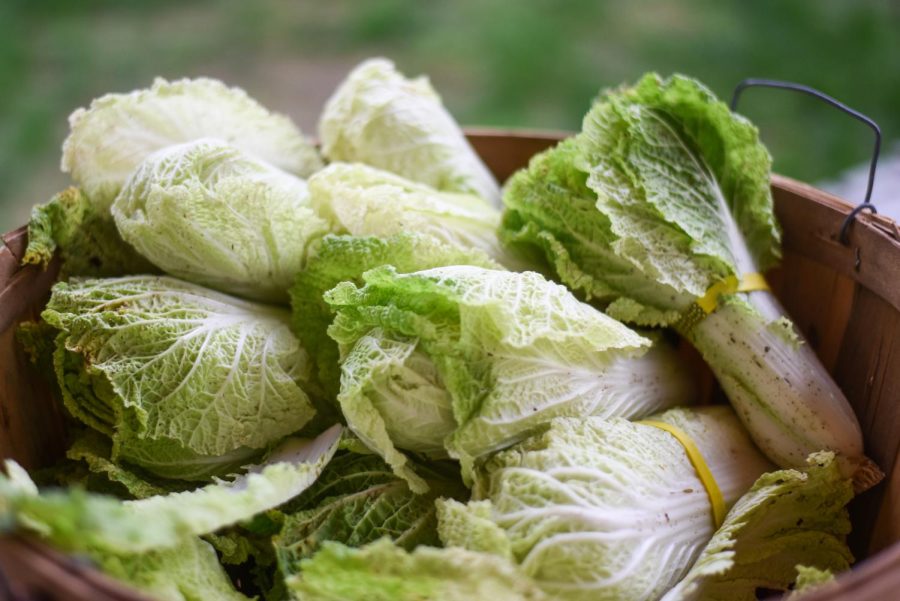With an abundance of environmental issues in the news cycle, it can be easy to become overwhelmed. There’s no single solution to solving these issues, but there’s a small step towards a better world that tends to be overlooked: sustainable living.
The University of Massachusetts has a variety of clubs and initiatives that are putting sustainability at the forefront of their mission.
The Permaculture Initiative is a hands-on community that’s the source of multiple student-accessible gardens on campus. Weekly events such as the UMass Student Farmers Market, held on the lawn between Goodell and Old Chapel, is hosted by the UMass Permaculture Initiative and UMass Student Farm every Friday from noon to 4 p.m.
The farmers market runs from Sept. 16 through Oct. 28. The community of farmers and local artists creates a space for both food and craft to cohabitate. With plenty of fresh produce and handmade goods, the market is a great opportunity for those looking to involve sustainability into their lifestyle.
“Our mission is to create [and] maintain edible landscapes on campus that provide meaningful, educational, and social opportunities,” Daniel Bensonoff said, UMass sustainability coordinator of campus gardens. “We’re getting at … understanding our region and being smart, ecological citizens.”
Many are feeling overwhelmed by the ecological and societal issues affecting our world. “I think the only way to counterbalance that is by actually taking some measures yourself and focusing on what you have some control over,” Bensonoff said. “We have ways that people can help directly by transforming landscapes by growing food for people [and] by growing medicines.”
The Permaculture Initiative currently offers volunteer hours on Thursdays and Sundays, where students can come and work in the garden with no past gardening experience required.
Jo Fuchs, junior sustainable food and farming major, is one of three student garden coordinators for the Permaculture Initiative. The group focuses primarily on principles of regenerative agriculture.
“Regenerative practices [are] at the heart and center of what permaculture is … and a lot of what we do is trying to honor and respect the Indigenous practices that have led this land to be maintained and [be] maintainable for thousands of years to come,” Fuchs said.
“We’re trying to do gardening and permaculture in a way that can bring us back to thinking of land as something that we’re tied with [and] something that is as part of us as any other part of our life,” she said.
These methods of gardening and agriculture embody the mission of living on a sustainable planet, as recycling and using what’s already around us is a simple way to start. There’s also a sense of awareness that helps tackle subjects such as food waste and overall wastefulness.
With the creation of gardens around UMass, students can “look at the Permaculture Garden and say ‘Oh, my food comes from somewhere, this is grown by people and [the] planet,’” Adam Finke, a senior majoring in BDIC and concentrating on regenerative food systems, said. “I hope that people see that and start [asking] where does my food come from, what is the impact of the food I’m eating and how can I get more connected to [the] food system.”
MASSPIRG recently got UMass to commit to 100 percent renewable energy by 2032. This accomplishment had been an ongoing process since 2019, all due to the continuous work between MASSPIRG, Chancellor Subbaswamy and the university administration. Additionally, MASSPIRG has been working with state legislation to pass the 100 percent Clean Act, which would establish 100 percent renewable energy by 2035 and 100 percent clean electricity by 2045.
“We’re also pushing for electric cars and getting everything to basically transition away from fossil fuels,” said Caroline Williams, the 100 percent renewable energy campaign coordinator for MASSPIRG. “This isn’t going to just happen overnight … this would be over like 10 years so it would be generating a market for electric cars.”
Williams, a senior majoring in environmental science and geography, hopes to work within the climate mitigation and renewable energy industry upon graduation.
Even amongst all these campus efforts, students struggle with where to begin in implementing sustainability into their daily routine. Shopping locally is an accessible and high-impact option to incorporate elements of sustainable living, said Sarah Berquist, professor of sustainable food and farming in the Stockbridge School of Agriculture.
“Looking at animal products, if you consume them, is a really great place to start,” Berquist said. “Supporting small, local dairy farms I think is a really great thing that we can do because that industry [in] particular is in decline, and I think that’s a place where those extra dollars have a higher impact.”
Berquist noted there is no singular way to live a sustainable life. “We all have different factors and complexities [and] trying to make the best decisions we can given the resources we have,” she said. “I think if people can be aware of their consumption and their impact, that’s the best thing we can do.”
“If you’re at this university, you have the keys to the castle,” Finke said, referencing the many ecological student groups on campus. “We can make change here [and] we have the power to make awesome stuff.”
Kate Bergeron can be reached at [email protected].



















Catriona • Feb 19, 2023 at 8:41 pm
Excellent article!